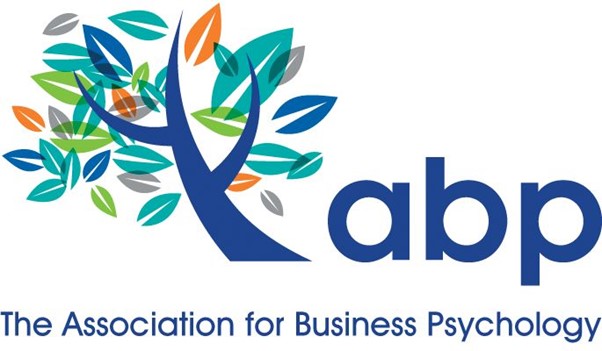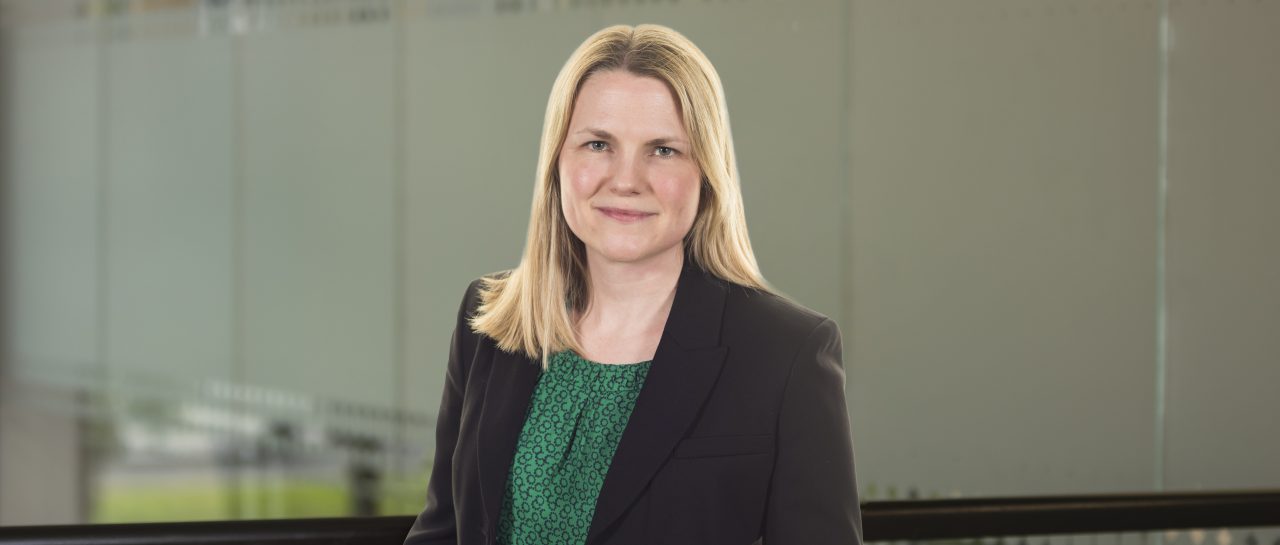After delivering a very well-received development programme for emerging leaders, we reflected on the question: What was the game-changer with this group of people? As we often find, the shift in people was felt when we were encouraging participants to look more deeply at the…

Introduction of Panellists: Stewart Desson introduced the panellists: Alan Redmond from the UK (ex-BPS DOP chair and long-time ABP contributor), Dawn Nicholson (vice chair ABP), Tammy Allen (a key figure in SIOP USA), and Clara To from Hong Kong (DIOP Vice Chair and ex-Chair).
Each shared what drew them to be on the panel and answered key questions on: industry trends, evidence-based practice, AI and our professional identity and role. Following great questions from the audience, here is a summary of the key points:
Current and Emerging Trends: Dawn Nicholson highlighted key trends such as a dramatic increase in workplace mental health issues, unresolved issues over remote, hybrid and office work, DEI fatigue, the integration of AI into organisations and finally, the need for a more helpful common language between business and academia, On that last point she shared “We cannot operate without each other… Until we can find a way to speak clearly and transparently to each other, that’s an ongoing problem for our field.”
Dawn emphasised the importance of business psychology addressing these trends in order to improve workplace productivity and employee well-being.
Technology and Professional Standards: Alan Redmond discussed the influx of technology providers in the assessment space and the consequent dilution of professional standards. With an inherent distrust of the “Tech Bros” bypassing ethics/science for profit, and emphasised the need for psychology-first firms to maintain their unique capabilities and professional standards. He pointed to the importance of the psychologists’ distinctive role in maintaining ethical rigour and scientific grounding within technology-driven solutions.
Remote Work Trends: Tammy focused on the rise of remote and hybrid work models post-COVID-19. While remote work became mainstream due to the pandemic, she noted that hybrid work is now more prevalent than fully remote setups. Tammy also referenced research indicating the benefits of hybrid models, such as increased autonomy and job satisfaction, while acknowledging potential challenges around social isolation and work-life boundaries. She shared, “Managers worry that if they can’t see workers, they’re not working, but the data says otherwise,” advocating for flexible, productivity-boosting work models that align with employee preferences, particularly in recruitment and retention.
AI and Automation: Clara discussed the integration of AI in assessment and coaching processes, highlighting the benefits of increased efficiency and the challenges of ensuring fairness, reliability, and ethical standards. She emphasised the need for psychologists to collaborate with AI developers (and to use AI themselves) while maintaining professional standards.
All of this makes AI a “double-edged sword”. For example, Clara raised concerns about AI’s impact on generational differences in assessments, suggesting that younger candidates may perform better in gamified assessment tools simply due to tech-savvy advantages.
Alan voiced more critical perspectives on AI, warning against over-reliance on technology and the risks of AI-driven “pseudoscience in psychology”. He cautioned, “We should temper the techno-optimism with critical thinking – remember, AI is neither artificial nor intelligent.” Alan emphasised that psychology professionals must ensure AI complements rather than replaces their expertise, likening AI to a photocopier – “its a tool, not a colleague.”
Dawn added a further practical perspective on AI, suggesting that while AI offers benefits, organisations must avoid blind trust in it. She quoted Professor Hannah Fry: “As humans, we are lazy and take cognitive shortcuts. Misplacing our trust in machines is a mistake we’re all capable of making.” Dawn stressed that AI should serve as an aid to experts, not a replacement, highlighting how algorithms must be carefully monitored to prevent biases.
Critical Thinking and Evidence-Based Practice: All the panel recognised the challenge of balancing market demands with scientific rigour. Alan shared that clients often request specific tools (like SJTs) without understanding their suitability, explaining that “commercial pressures sometimes discourage the in-depth, evidence-based conversations we know are beneficial.” He argued for maintaining professional standards and pushing back when needed to ensure the proper outcomes.
To do this, we must fully engage our critical thinking and evidence-based practice in the face of such commercial pressures. He encouraged us all to engage in holistic discussions with clients to ensure the right solutions are implemented. Tammy broadened this into a request for not just critical thinking but more training for all, and use of, the scientific method.
From a Hong Kong perspective, Clara noted that organisations tend to seek quick fixes and cost-driven solutions, which can hinder evidence-based practice. She suggested a compromise approach in which psychologists adapt existing processes, such as structured interviews, to align with evidence while keeping costs manageable.
Global Perspectives on Professional Standards: All panellists shared insights on the differences in professional standards and terminology across USA/UK/Hong Kong.
Different terms like “business psychology,” “industrial-organisational psychology,” and “occupational psychology” are used across regions. Tammy explained that, in the US, title laws and accreditation challenges limit who can officially call themselves psychologists, with some IO psychologists preferring to identify as “business consultants” instead. Challenges of licensure in the US vary state by state and contribute to many practitioners getting a PhD to credentialise themselves.
In Hong Kong, Clara shared that while “psychologist” is not a statutory title, there is respect for accredited professionals. She noted that in strategic projects, her consultancy often uses the term “business psychologist,” particularly when pitching to diverse business stakeholders, to bridge understanding.
Dawn reflected that the field’s focus should be on fostering multiple, diverse entry routes to our profession whilst maintaining high standards. “There’s a demand for more entry points into the profession, but we must be cautious about the risk of lowering standards,” she said, advocating for a balanced approach.
In the UK, PhDs are less common with practitioners as historically there has been BPS Chartership. However, last year’s events at the BPS DOP have now introduced uncertainty around the chartership route. Alan suggested that the BPS may no longer be a regulator but a professional body. The ABP offers increasingly popular certifications that recognise various tiers of Business Psychologists. It is developmental in orientation and more inclusive in the practitioners it attracts to go down this route. For example, it is open to experienced people in the field who may not have a first degree from an approved undergraduate psychology course but may still be very highly qualified academically (e.g. with a PhD in Psychology) or in practice (e.g. twenty years of experience running a psychology practice).
Clara explained the professional membership organisation she is a part of in Hong Kong is called DIOP (with I/O in the name). This name aligns with the local education curriculum, which benchmarks I-O Psychology programs from the US. Additionally, it follows standards from the BPS DOP based on the definition of “Occupational Psychologist”. Meanwhile, she noted in practice that the term “Business Psychologist” may be more easily understood by organisations in Hong Kong.
Alan shared his preference for simply calling himself a “psychologist” and not worrying about other terms, much like lawyers, accountants, and other professions do.
Advocacy and Media Presence: Dawn highlighted the need for increased media presence and advocacy to raise public awareness of psychology’s role. She urged professionals to actively comment on current issues to bridge the gap between academia and practical applications, enhancing public understanding of the profession.
The discussion concluded with each panellist sharing one suggestion for advancing the profession:
- Dawn: “We need more media presence — let’s comment on everything, everywhere and focus on the application of research.”
- Alan: “Stick to our guns” and “Differentiate ourselves with unique psychological expertise.”
- Clara: “Translate the latest research into practical, impactful solutions for business.”
- Tammy: “Harness our collective power across regions for greater impact.”
In summary, the panel underscored the importance of critical thinking, evidence-based practice, and global collaboration as essential pillars for the future of the profession. The panellists offered a paradoxical combination of both optimism and caution as we all navigate the rapid changes reshaping business and psychology.



